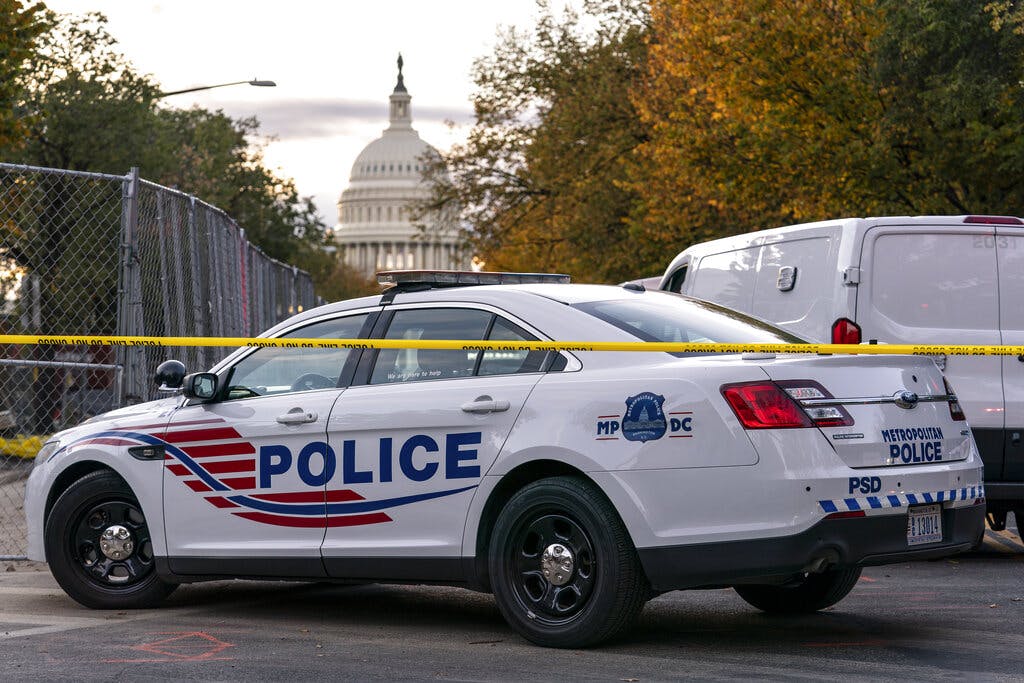Threat From Senate Forces D.C. Council To Withdraw Bill Easing Criminal Penalties
Supporters of the bill on the council blamed its demise on politics rather than substance.

The Washington, D.C., city council on Monday withdrew a criminal justice bill that would have reduced the penalties for many violent crimes after the Senate appeared poised to strike it down with the unexpected blessing of President Biden.
“I don’t know if that’ll stop the Senate Republicans, but our position is the bill is not before Congress any longer,” the D.C. council chairman, Phil Mendelson, said at a press conference Monday.
The House and the Senate are able to reject bills passed by the Washington, D.C., city council. If the House and Senate pass a disapproval resolution, and the president signs it, the proposed D.C. law does not go into effect.
In early February, Mr. Biden had threatened to veto any disapproval measure, citing the importance of Washington, D.C., home rule and self-governance. Last week, though, he infuriated liberal Democrats in Congress by reversing his position.
After 31 House Democrats joined Republicans to pass the measure of disapproval in February, and Senators Manchin and Tester expressed support for it in the upper chamber, Mr. Biden said Thursday he would sign a disapproval resolution if it arrived on his desk.
Mr. Biden and his Democratic allies faced criticism from Republicans, who accused them of prioritizing criminals over victims. “The modern Democratic Party and its coalitions have decided it’s more important to have compassion for serial violent felons than for innocent citizens who just want to live their lives,” the Senate minority leader, Mitch McConnell, said last week.
In an announcement on his change in position, Mr. Biden explained that he agreed with objections raised by Mayor Muriel Bowser and did not support lowering the mandatory minimum for some crimes.
Council supporters of the bill blamed its demise on politics rather than substance. “The messaging got out of our control, and that the messaging got picked up by Republicans who wanted to make a campaign out of it,” Mr. Mendelson said.
Now, it’s up to Senate Republicans to decide whether they still want to vote on the measure. At the press conference Monday, Mr. Mendelson suggested that it may be reintroduced later after some revisions.
“I think just pulling it back and assessing what the next step is and looking at some of the issues explaining better what the legislation does and does not do,” Mr. Mendelson said.
Ms. Bowser vetoed the original bill after it was passed by the council, but her veto was overridden in a 12-to-1 vote. She said she agreed with many of the changes that the bill would have made, but was concerned with the message that it sent during a period when crime is on the rise in the city.
“While no one believes that penalties alone will solve crime and violence right now, we must be very intentional about the messages that we are sending to our community, including prosecutors and judges,” Ms. Bowser said about the bill.
Among other updates to the district’s criminal codes, the bill would have eliminated most mandatory minimum sentences and reduced punishments for some violent crimes, including carjackings and robberies.
“People, we know, are tired of violence and right now our focus must be on victims and preventing more people from becoming victims,” Ms. Bowser said.
It looks likely now that Senate Republicans will push forward with the vote, with one Senate aide saying that the process does “not allow for a withdrawal.”
Senate Republicans can still bring the issue to a vote, even though the council withdrew the measure, simply because they are voting on a resolution passed in the House.
Mr. Mendelson said that if Senate Republicans do choose to push forward with the vote, as expected, “it will be a hollow vote because it really isn’t there before them.”
Regardless of whether the vote goes forward, it’s clear the topic will remain a part of Senate Republican messaging. The Senate Leadership Fund criticized Senator Kaine, a Democrat of Virginia, for refusing to answer questions on a topic they claim will affect the personal safety of Virginia commuters.
After the bill had been withdrawn, the group released a statement criticizing Mr. Kaine for refusing to “give a straight answer” on the topic. When asked about the topic, he had said, “It’s a complicated matter.”
Senator Hagerty also expressed his disapproval after the withdrawal of the bill, saying that the maneuver has “no basis in the D.C. Home Rule Act, but underscores the completely unserious way the D.C. Council has legislated.
“No matter how hard they try, the council cannot avoid accountability for passing this disastrous, dangerous D.C. soft-on-crime bill that will make residents and visitors less safe,” Mr. Hagerty said.

